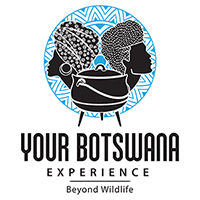Things You Need To Know Before Travelling To Botswana
Before embarking on a journey to Botswana, It is crucial to equip yourself with essential information to ensure a smooth and enriching travel experience. From its diverse wildlife and stunning landscapes to unique cultural aspects, Botswana offers a rich tapestry for explorers. Here are key factors to consider before traveling to this Southern African gem, ensuring you make the most of your adventure in the heart of the continent. Please see below some of the crucial information you might need to know.
Seasonal Considerations
Botswana is affected by changing seasons and possible activities may vary dramatically from one season to the next as a result, as well as wildlife concentrations and migrations. For more detailed information on water levels, please read our blog water levels.
Travelling in light aircraft
On fly-in safaris, movement between camps is generally by a light aircraft due to remote areas visited and distances travelled. If you are susceptible to motion sickness, best to be prepared with suitable, non-drowsy medication. For safety reasons light aircraft transfers have a restriction of 15kg luggage plus 5kg of hand luggage (20kgs total) per person, packed in SOFT bags. However the flight could have between 3 or 4 stops en-route. Upon arrival at the airstrip, you will be welcomed by the camp representative.
Exposure To The Elements
Typically open safari vehicles expose travellers to the elements meaning greater exposure to the sun in summer and icy winds in winter. In winter (May – Sep), expect hot temperatures during the day and very cold nights in accommodation with canvas walls. Hot water bottles, extra blankets and ponchos may be provided to keep you warm in camp and on your game drives to minimise the impact of the cold. In summer (Nov – Apr) you will experience hot days and nights with possible rainstorms in the afternoons. It is imperative to increase your fluid intake considerably, to avoid dehydration and heat exhaustion. In September & October both the days and nights are incredibly hot and may cause discomfort for sleeping.
What to pack – Clothing
As most game viewing activities are taken in open safari vehicles or boats, it is important that you wear appropriate clothing to suit. Generally, layers of clothing are recommended so that you can take off or add on as the day warms up/cools down. Pack a warm jacket and windproof in winter months and a waterproof in summer months. It is recommended that you wear a hat throughout all seasons, and you will need gloves and a scarf in winter months (May – Aug). Natural colors are best. Long sleeves are extremely useful for sun protection during the day and mosquito protection during evenings. Don’t forget your costume in summer.
What to pack - Equipment & Toiletries
In most camps torches will be provided, but we urge clients to bring their own head lamps, as these are very useful. Camera equipment, binoculars, batteries, spare camera batteries and spare memory cards for digital cameras are essential as the opportunity to download photos is limited. It is useful to bring your own reading material for siesta hours. Some camps provide basics toiletries like insect repellent, soap, body lotion and shampoo. However, keeping luggage restrictions in mind, you may want to bring personal insect repellent stick, sunscreen and hair conditioner, spare reading glasses or contact lenses and a small medical kit. It is essential that you carry all prescribed medication in your hand luggage. Please bring a spare prescription in case of loss or damage whilst travelling.
Dietary Requirements in remote areas
Specific dietary requirements are catered for provided we are notified when making your booking. Please note that specialist gluten free/vegan foods are not always available in Botswana and you need to discuss your particular requirements with your travel consultant.
Medical Evacuation Insurance
There are certain inherent risks associated with a safari including remote locations and limited medical facilities. All clients must have their own medical and evacuation insurance. It would be advisable to give your local booking agent all relevant insurance details to avoid any delays in the event of an emergency. Click here for more information on Okavango Air Rescue.
Power supply
The power supply in Botswana is 220V. Many safari camps and lodges run on generators and few have 24 hour electricity. Some camps will not have plug points in the guest rooms but will generally have power points in the main camp area for charging batteries. Mobile safari operators have a system for recharging camera batteries through the car battery with an inverter. Many camps will have universal plug points but to be on the safe side, you should purchase an international adaptor before travel.
Travelling with children
If you are travelling with children through Botswana Borders, please be aware that you will be required to have certified copies of their unabridged birth certificates, and passports on hand. In addition, if travelling with one parent you will need a court order/ death certificate/ affidavit confirming the absent parent has given permission for the child to travel plus a certified copy of ID/ Passport of absent parent.
Tipping
While tipping is not a requirement, it is a generally accepted form of “thanks” throughout the world and highly appreciated by all levels of staff. Tipping should reflect the level of service you have received throughout your trip Tips in USD, Euro or BWP are always welcome.
Visa Requirements
Citizens of certain countries are required to obtain visas well in advance of travel toBotswana. Please note that certain visas can take up to 3 months to be processed so please consider this when booking. Link To Visa Requirement Information


